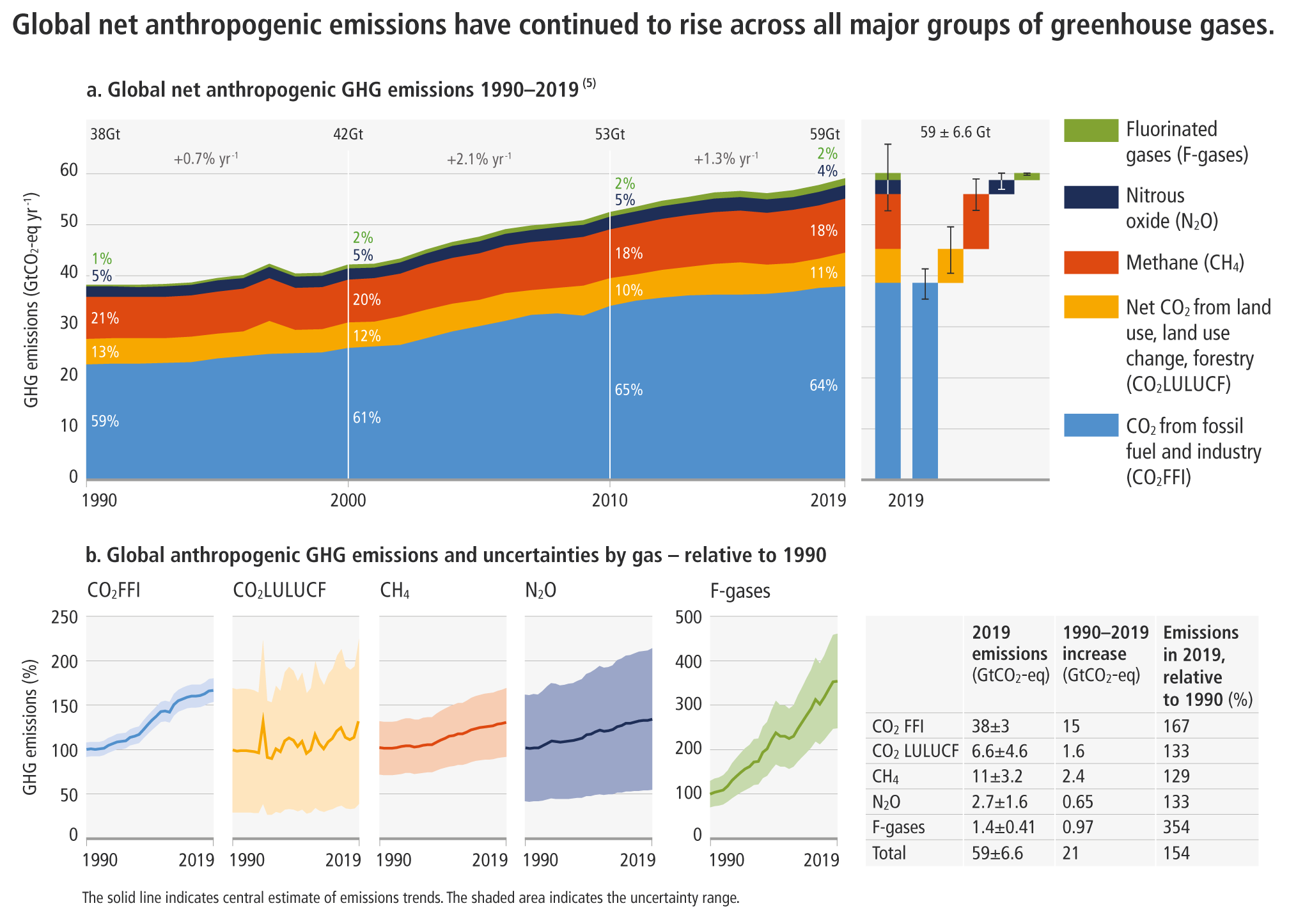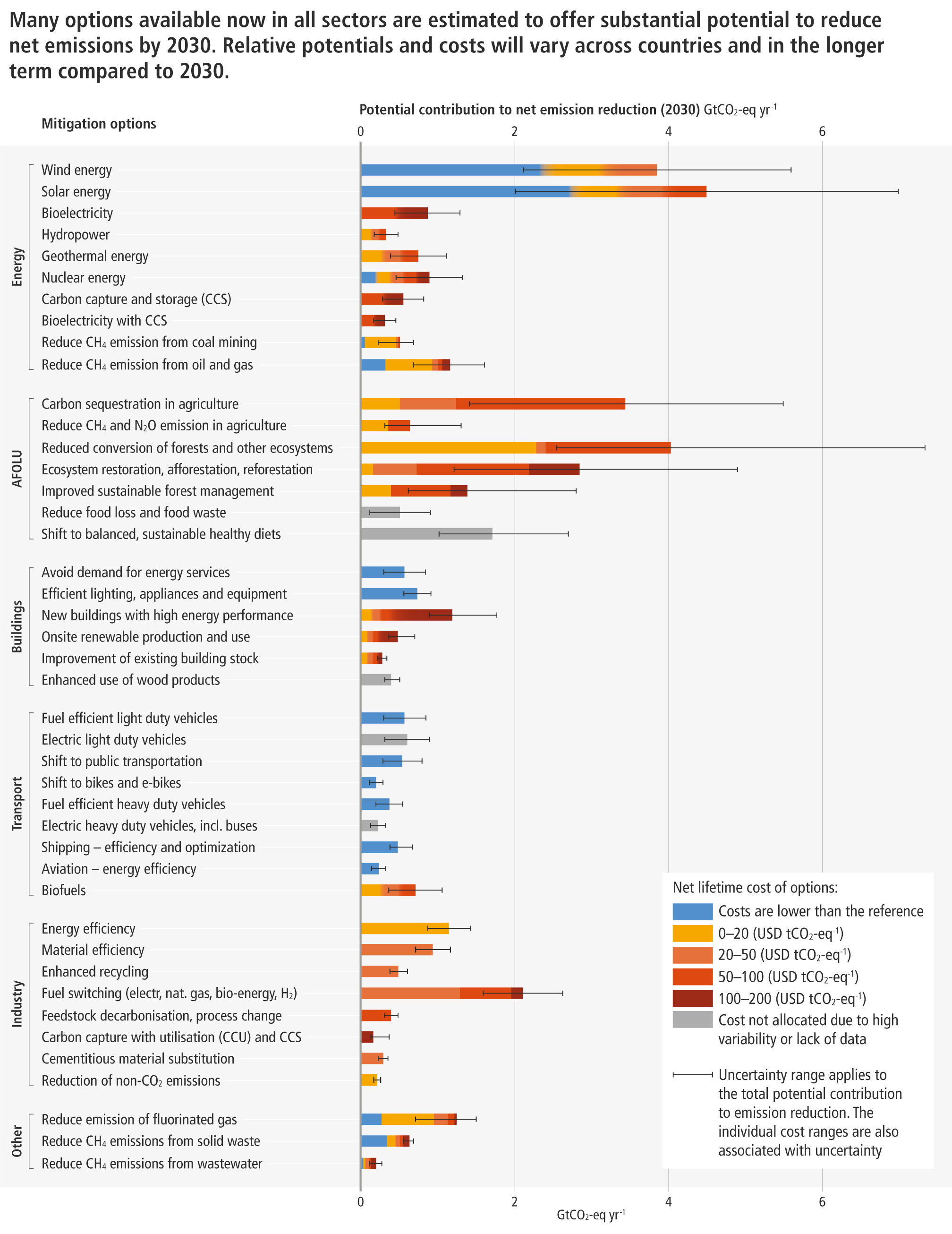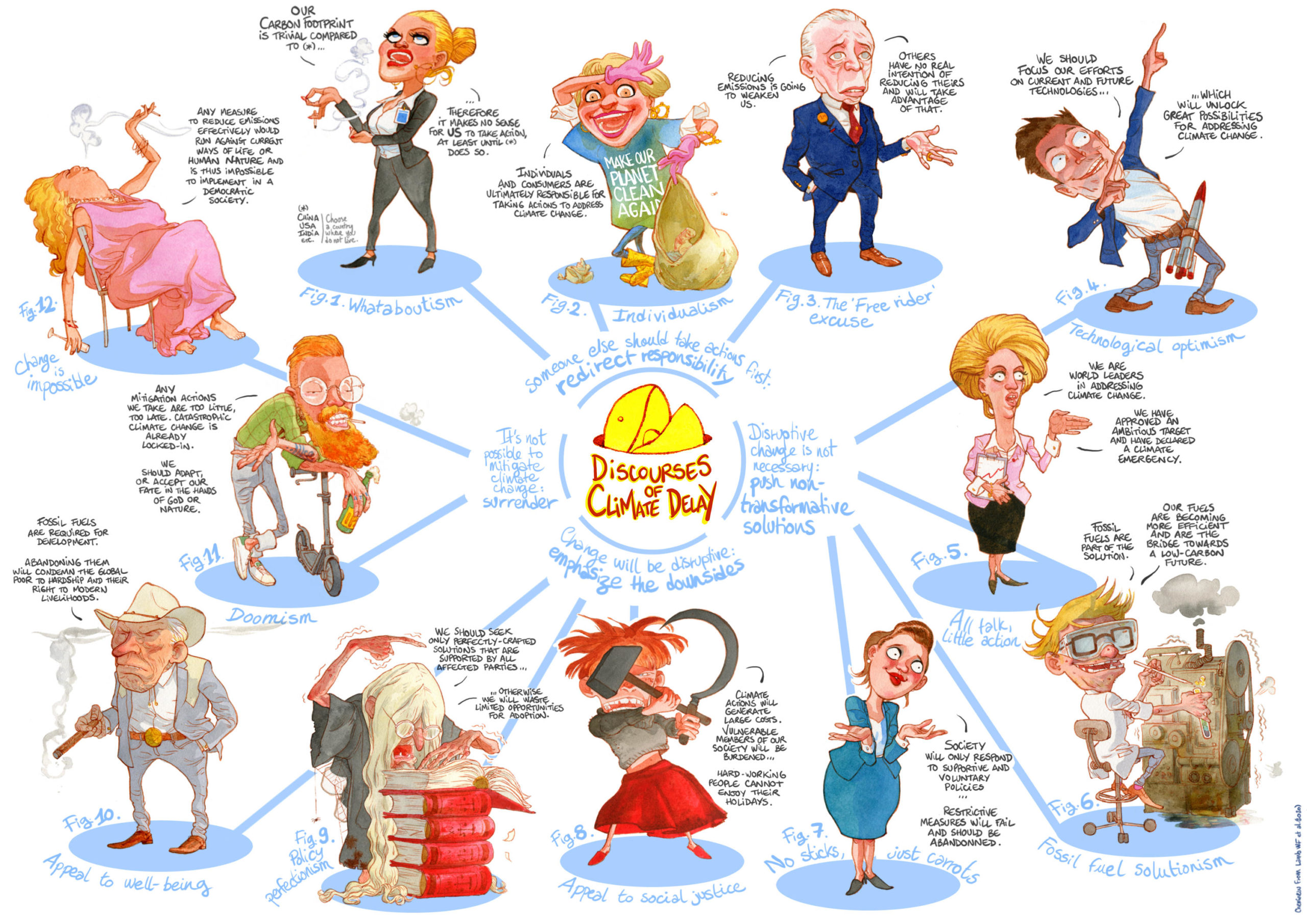The IPCC Sixth Assessment Report is perhaps a bit optimistic in what we can achieve in such a short time period. The current geopolitical climate is so hot (pun intended), that few are looking beyond the ongoing COVID-19 pandemic. This report cites a number of actions we can collectively work to mitigate our boiling planet. But most of this must be done by 2030. That’s just two U.S. presidental elections away! On this front, I’m a bit pessimestic that we can corral all countries to act in lock-step to save us from our impending doom.
IPCC report 🔗


Politics as usual 🔗
The average politican might look at this report and forget what they read the moment some lobbist walks through their doors. With each year we delay or green-wash a policy without true action only makes the cost of inaction that much more astronomical.
Unless we can get the leadership in agreement and onboard, we are going to have a very hard time to educate and convince everyone else on the planet why they need to change their lifestyles.
While the goal was to prevent a rise beyond 1.5°C global temperature, our current rate strongly points to barely keeping the mark below 2.5°C! This would amount to a global crisis Humanity has never faced - near extinction. Not only will there be climate refugees, but wars will quickly break-out to battle over precious resources. Our food supply will quickly deminish as the environments needed to support our crops will die off.
Discourses of climate delay 🔗
These responses are typically pushed and encouraged by the far-right’s disinformaiton campaigns to disincentivize anyone from taking action.

Is there any hope? 🔗
The picture isn’t totally oblique. We have a great outline of actions we should take on multiple sectors… The bad news is that even if we did everything to mitigate the rising global temperatures, we still need to develop and deploy carbon-capture technologies. None of which have proven themselves today… And, few businesses are willing to retrofit their existing systems for carbon-capture simply because it affects their profits. Without government subsides and programs to push this issue to the forefront, we will miss the target.
Start today 🔗
- Read this report in full.
- Start talking about it with your friends and family. Make this a global conversation.
- Take the “baby steps” collectively so we can make a larger impact. Every bit does actually count. The easiest things we can do include stop using plastic for everything! Reduce (or stop) our meat and animal byproduct consumption.
- Actively petition your local politicans and leaders to focus on saving our future on this planet.
- Keep the conversation going with everyone around you.
The continuation of our species on this planet depends on collective action.
For more information, check out this video: https://youtu.be/fRTic6mjCFk
IPCC ‘Survival Guide’. Hope or delusion? | Video (13:53 minutes) 🔗
The latest IPCC report suggests we can survive the 21st century by making unprecedented and totally radical changes in the next eight years. But even then we’ll still need to suck billions of tons of CO2</sub back out of our atmosphere for decades. The IPCC believes it can be done. But are they deluding themselves and giving us a false sense of security?
We need to talk about the latest IPCC report | Video (51:37 minutes) 🔗
In which I chat with not one, but two climate scientists about the IPCC’s latest Working Group II report, and how to deal with the psychological toll this fuckery has on all of us who are paying attention. Feat. NASA scientist Peter Kalmus and atmospheric scientist, Ella Gilbert.
Massive global energy disruptions are coming. Brace yourself! | Video (16:19 minutes) 🔗
Global energy disruptions are already in the news for all the wrong reasons. But according to a new report from the International Renewable Energy Agency, you ain’t seen nothing yet! 15 million jobs are set to be lost from the fossil fuel industry in the coming years, but more than three times that will be created in the renewable sector. So, can we transform our systems and lifestyles in time to cope with coming revolution?
IRENA Executive Summary
https://www.irena.org/publications/2022/Mar/World-Energy-Transitions-Outlook-2022
IRENA Main report
https://www.irena.org/-/media/Files/IRENA/Agency/Publication/2022/Mar/IRENA_World_Energy_Transitions_Outlook_2022.pdf
The Truth About Carbon Taxes | Video (15:57 minutes) 🔗
Honest Government Ad | Carbon Credits & Offsets | Video (4:05 minutes) 🔗
The Australien Government has made an ad about its carbon-credits (scam) scheme, and it’s surprisingly honest and informative.
DON’T LOOK UP | Official Trailer | Video (02:45 minutes) 🔗
DON’T LOOK UP tells the story of two low-level astronomers who must go on a giant media tour to warn mankind of an approaching comet that will destroy planet Earth. Written and Directed by Adam McKay. This is actually a parody of how we are handling the Climate Crisis.
Futurama – The Great Garbage Crisis of 2000 | Video (01:24 minutes) 🔗
Unlike “DON’T LOOK UP,” this satire does a great job of pening our doom with the Climate Crisis.
Julia Steinberger: Struggle for survival: The importance of climate activism | Video (45:58 minutes) 🔗
ISC 2021 Summer School – Cognitive Challenges of Climate Change (https://sites.grenadine.uqam.ca/sites/isc/en/iscuqam2021/schedule?date=2021-06-04)
Day 10
Talk by Julia Steinberger: Struggle for survival: The importance of climate activism from the perspectives of political economy and science communication
MC: Stevan Harnad, Professor of Psychology (cognitive sciences) at UQAM and at McGill and Professor Emeritus at the University of Southampton.
Abstract:
Climate activism is crucial for any sustained progress on climate action. I will discuss this from two systemic perspectives in social science: political economy and science communication. I will explore what the terms “fossil capitalism” and “captured state” mean in reality and for activism, in particular through the lens of the political economy of dependence on cars. I will build on this systemic understanding to draw lessons for the role, potential and necessity of social organizing and activism.
References:
Pirgmaier, E. and J.K. Steinberger (2019) Roots, Riots, and Radical Change—A Road Less Travelled for Ecological Economics. Sustainability 11(7).
Mattioli, M., D. Roberts, J.K. Steinberger and A. Brown (2020) The political economy of car dependence: a systems of provision approach. Energy Research and Social Science.
Steinberger, J. K. (2019) A Postmortem for Survival: on science, failure and action on climate change. Medium.com .
Bio:
Julia Steinberger is a Professor of Ecological Economics at the University of Lausanne. From 2011 to 2020, she was an associate professor in ecological economics at the University of Leeds. Before she was a Senior Researcher at the Institute of Social Ecology in Vienna (SEC), where she investigated sustainable cities and the links between material use and economic performance, held postdoctoral positions at the Universities of Lausanne and Zurich, and obtained her PhD from the Massachusetts Institute of Technology. Her research examines the connections between resource use (energy and materials, greenhouse gas emissions) and societal performance (economic activity and human wellbeing).
She received a Leverhulme Research Leadership Award for her research project ‘Living Well Within Limits’ investigating how universal human well-being might be achieved within planetary boundaries. She was the Lead Author in working group 3 for the Intergovernmental Panel on Climate Change (IPCC)6th Assessment Report, contributing to the report’s discussion of climate change mitigation pathways.

